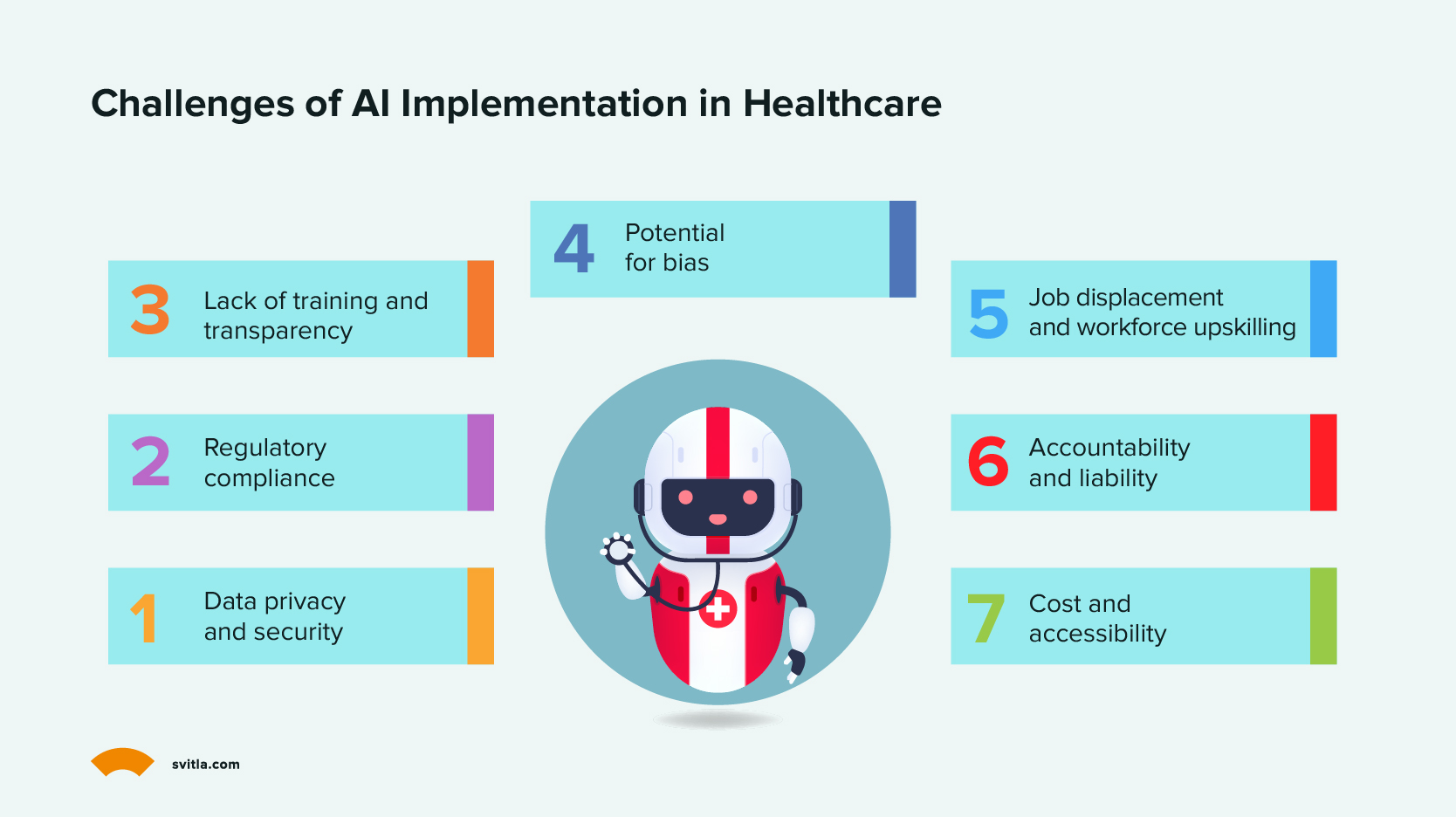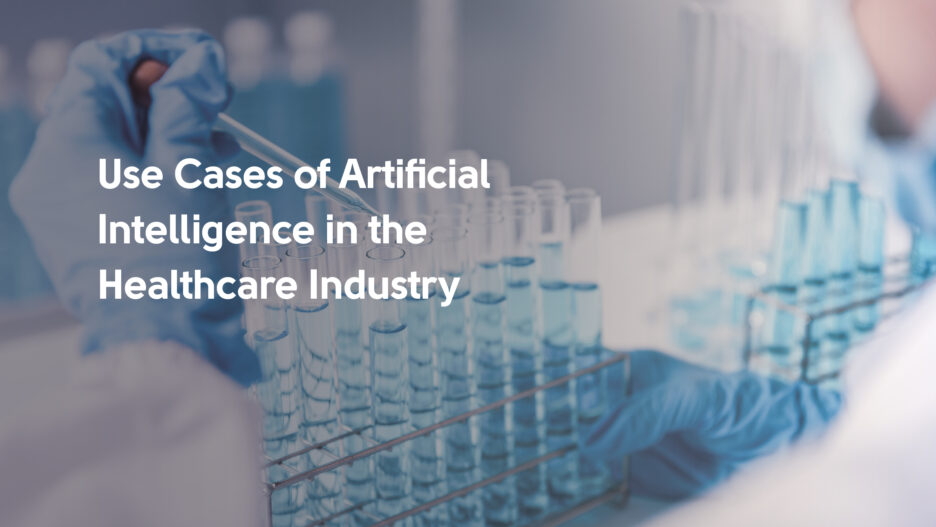Artificial intelligence (AI) is rapidly transforming industries across the globe, and healthcare is no exception. With its ability to analyze vast amounts of data, recognize patterns, and make predictions, AI in healthcare is poised to deliver what it takes to revolutionize how we diagnose diseases, design treatments, and provide care.
Modern Healthcare Demands Modern Solutions
Modern and evolving medicine calls for more than just traditional protocols. Today, patients expect accurate and timely diagnoses, personalized treatment plans, and proactive measures to prevent future health concerns. Fortunately, innovation is meeting this demand head-on, with technologies like artificial intelligence emerging as a powerful ally in the healthcare revolution.
Healthcare leaders hold a golden opportunity to revolutionize healthcare through innovation. McKinsey analysis reveals a clear opportunity to unlock a collective potential of $1 trillion to $1.5 trillion by 2027. But to seize this chance, a fundamental shift in how healthcare leaders approach growth and transformation is crucial.
Imagine AI-powered systems meticulously analyzing medical images, spotting subtle anomalies that might escape the human eye. Picture AI algorithms predict disease outbreaks before they escalate, allowing targeted interventions to save lives. Envision patients interacting with chatbots that answer their questions 24/7, empowering them to take charge of their health. This is not science fiction; it's the reality AI is shaping right now.
In this article, we'll delve into the fascinating world of AI applications in healthcare. We'll explore how AI is used in healthcare and how it’s changing the game across various fields, from diagnosis and treatment to drug discovery and patient care.
1. Diagnosis and Treatment: Seeing Beyond the Obvious
Eagle-eyed AI
Ever felt like doctors have superpowers when analyzing medical images? AI might soon share the spotlight! Algorithms trained on vast datasets can now analyze X-rays, MRIs, and other scans with superhuman accuracy, detecting tumors, fractures, and abnormalities that might slip past human eyes. This leads to faster diagnoses, more precise treatment plans, and ultimately, better patient outcomes.
Tailored Treatment, Not One-Size-Fits-All
Forget cookie-cutter solutions. AI is helping design personalized treatment plans based on individual patient data, medical history, and genetic information. AI algorithms will predict how a specific patient will respond to different medications, allowing doctors to choose the most effective option with minimal side effects. This is the future of truly personalized medicine.
Surgical Precision with Robotic Assistance
Da Vinci surgical robots, guided by AI-powered algorithms, perform minimally invasive procedures with unparalleled precision. Robots assisting surgeons in delicate brain surgeries will minimize risks and ensure faster recovery times. This is just the beginning of AI-powered robotic surgery, set to transform the operating room experience.
2. Drug Discovery and Development: Accelerating the Race Against Time
From Haystack to Needle
Developing new drugs is a notoriously slow and expensive process. AI is changing the game by analyzing vast datasets of molecular structures and biological pathways, identifying potential drug targets at an unprecedented speed. AI can sift through millions of molecules to find those with the potential to fight complex diseases like cancer, accelerating drug discovery timelines by years.
Trial and Triumph
Clinical trials, crucial for testing new drugs, are often plagued by inefficiencies. AI is stepping in to optimize trial design, identify the most suitable patient groups, and predict potential risks, leading to faster, more cost-effective trials with higher success rates. AI will help bring life-saving medications to patients quicker than ever before.
3. Patient Care and Monitoring: a 24/7 AI Companion
Chatbots that Care
AI-powered chatbots answer patients’ questions, assess symptoms, suggest following self-care options, schedule appointments, and provide personalized health advice based on your medical history. This empowers patients to be active participants in their health journey.
Chronic Conditions, Conquered
Managing chronic illnesses like diabetes or heart disease can be overwhelming. AI-powered tools can analyze patients' data (wearables, medication adherence, etc.) to predict potential complications and suggest personalized adjustments to their treatment plans. We envision a short-term future where AI acts as a proactive health coach, helping patients stay on track and avoid future health risks.
Mental Health Matters
AI is even making waves in mental health support. Nowadays, chatbots offer therapeutic conversations, analyzing speech patterns to identify signs of depression or anxiety and connecting patients with appropriate resources. This can provide much-needed support, especially in areas with limited access to mental health professionals.
Administrative Efficiency and Operations: Freeing Up Time for What Matters Most
Data Drudgery Defeated
Medical professionals spend countless hours on administrative tasks like data entry, coding, and claims processing. AI automates these tedious tasks, freeing up valuable time for patient care. For example, AI bots extract information from medical records with pinpoint accuracy, streamlining workflows and reducing administrative burdens. Or consider the potential of AI-powered e-prescriptions to simplify workflows, reduce errors, and improve medication adherence.
Fraud Fighters
Healthcare fraud costs billions annually. AI-powered systems can analyze vast amounts of data to detect fraudulent claims in real-time, saving resources and protecting the integrity of the healthcare system. AI will act as a watchdog, ensuring funds are directed towards patient care, not illegal activities.
Resource Optimization
Hospitals face complex challenges managing resources like beds, staff, and equipment. AI can analyze data to predict patient flow, optimize resource allocation, and anticipate potential bottlenecks. AI ensures the right resources are available at the right time, leading to smoother operations and improved patient experience.
This is just a glimpse into the diverse and impactful world of AI applications in healthcare. As technology continues to evolve, we can expect even more breakthroughs that will redefine the future of medicine, making it more accurate, personalized, and accessible for all.
Proactive Prevention: AI as Your Health Guardian
While the abovementioned applications focus on diagnosis and treatment, AI's impact extends beyond reacting to illness. It's revolutionizing preventive healthcare, empowering individuals and healthcare systems to prevent diseases before they arise actively.
Early Detection, Early Intervention
- Predictive power: AI algorithms can analyze your genome, lifestyle data, and medical history to identify unique risk factors for developing specific diseases, like heart disease or diabetes. This early warning empowers you to take proactive steps like dietary changes, exercise routines, or preventative screenings, potentially stopping a future health crisis before it starts.
- Spotting subtle signs: Wearable devices with AI-powered analysis can track vital signs like heart rate, sleep patterns, and blood pressure, identifying subtle changes that might indicate developing health concerns. We can expect to have a fitness tracker alerting you to an abnormal heart rate pattern, prompting you to consult a doctor, and potentially preventing a severe cardiac event.
- Population-level protection: AI can analyze vast datasets of health records to identify emerging trends and predict disease outbreaks. AI algorithms can spot a spike in flu cases in a specific region, allowing public health officials to intervene quickly with targeted vaccinations and containment measures. Or consider the importance of data privacy and security in healthcare AI, and how regulations like HIPAA and FERPA play a role in ensuring patient data protection.
Personalized Risk Management
- Tailored interventions: Instead of one-size-fits-all approaches, AI can create personalized risk management plans based on patients’ data. AI recommends targeted lifestyle changes or preventative medications based on unique risk factors, maximizing their effectiveness and minimizing unnecessary interventions.
- Mental health matters: AI-powered apps can track mood patterns, analyze social media activity, and identify signs of depression or anxiety early on. We’ll witness AI tools suggesting mindfulness exercises, recommending helpful resources, encouraging you to seek professional help, and promoting proactive mental health management.
- Chronic conditions under control: For those with chronic conditions, AI can analyze data from wearables and medical devices to predict potential complications and suggest real-time adjustments to their treatment plans.
Empowering Individuals, Using AI in Healthcare:
Health education on demand: AI-powered virtual healthcare assistants can answer patients’ questions about health topics, provide personalized health education, and guide you toward reliable resources. Users will readily have a 24/7 health information assistant, empowering them to make informed decisions about their well-being.
Motivation and support: AI-powered health coaching apps can personalize daily goals, track progress, and offer feedback, motivating you to stick to healthy habits. We can expect virtual coaches to cheer users as they reach their fitness goals or provide encouragement when needed.
Building a culture of prevention: AI can analyze population health data to identify communities with high disease risks and tailor targeted interventions. AI-driven public health campaigns will reach individuals most susceptible to preventable diseases, promoting healthy lifestyle choices and early screening.
By highlighting the AI uses in healthcare, it’s undeniably exciting to witness the healthier future that AI is paving for all.
Navigating the Challenges: Charting a Course for Responsible AI in Healthcare
While the potential of AI in healthcare is vast, its journey is not without obstacles. Several challenges need to be addressed to ensure responsible and ethical implementation:
- Data privacy and security: AI algorithms thrive on data, but patient data is susceptible. Ensuring robust data privacy and security measures is paramount to avoid breaches and misuse of information. Striking a balance between harnessing data for AI advancements and protecting patient privacy requires careful consideration and innovative solutions.
- Regulatory compliance: The evolving nature of AI presents hurdles in terms of regulatory compliance. Clear guidelines and frameworks are needed to ensure AI healthcare applications adhere to ethical standards, data privacy regulations, and patient safety protocols.
- Lack of education and transparency: Many healthcare professionals lack the necessary training and understanding of AI's capabilities and limitations. Transparency in AI development and decision-making processes is crucial to building trust and acceptance among medical staff and patients.
- Potential for bias: AI algorithms trained on biased data can perpetuate existing inequalities in healthcare. Recognizing and mitigating potential biases in algorithms and datasets is essential to ensure fair and equitable access to AI-powered healthcare for all.
- Job displacement and workforce training: Concerns exist regarding potential job losses due to AI automation. Strategies for workforce retraining and upskilling are crucial to ensure a smooth transition and equip healthcare professionals with the skills needed to work effectively alongside AI.
- Accountability and liability: As AI plays an increasingly prominent role in healthcare decision-making, questions arise regarding accountability and liability in case of adverse outcomes. Defining clear lines of responsibility and establishing transparent grievance mechanisms are essential to ensure patient safety and trust.
- Cost and accessibility: Implementing and maintaining AI systems can be expensive, potentially creating an accessibility gap for low-income individuals and healthcare systems. Equitable access to AI-powered healthcare technologies remains a crucial challenge to address.

Addressing these challenges head-on is crucial to unlocking the full potential of AI in healthcare while ensuring it serves humanity ethically and responsibly.
A Future Powered by Healthcare's AI Revolution
The journey of AI in healthcare is just beginning, but the excitement surrounding its potential is undeniable. From diagnosing diseases with superhuman accuracy to predicting outbreaks and empowering individuals to manage their health actively, AI is poised to reshape the healthcare landscape.
While challenges like data privacy, regulatory frameworks, and workforce training demand careful consideration, the potential benefits outweigh the hurdles. By embracing responsible development, addressing challenges head-on, and prioritizing ethical considerations, we can ensure that AI is a powerful tool for good, transforming healthcare into a more accurate, personalized, and preventive system for all.





